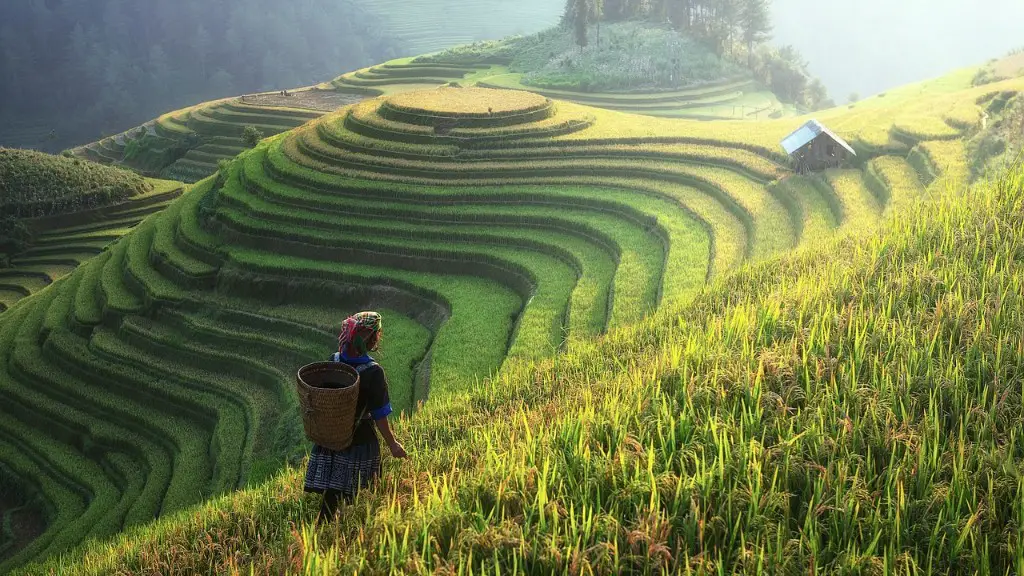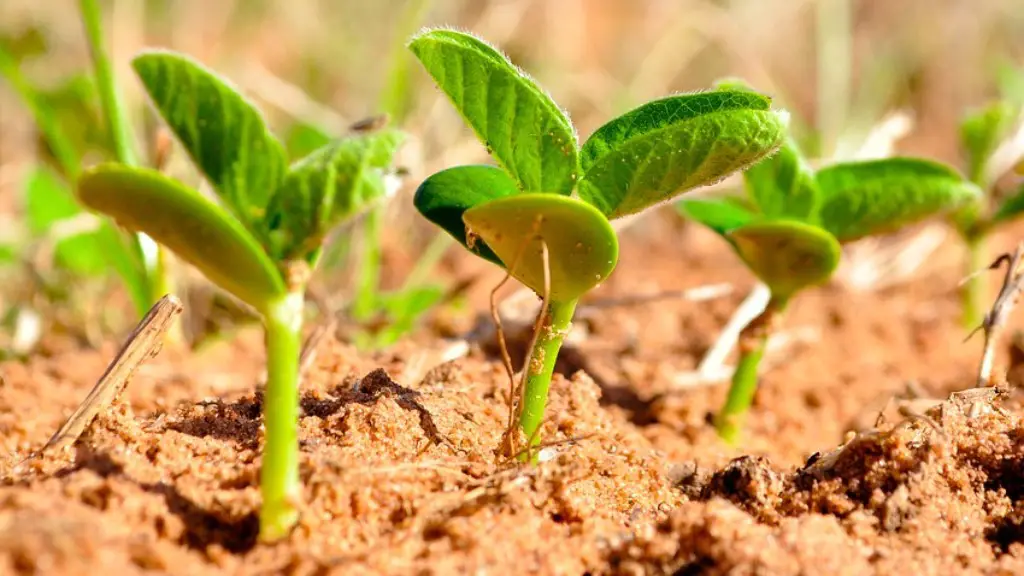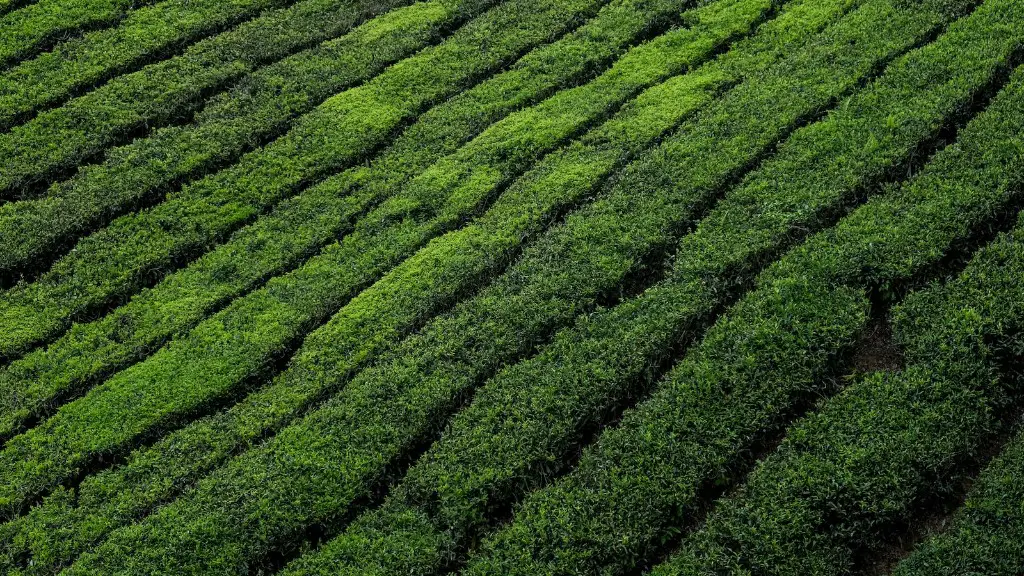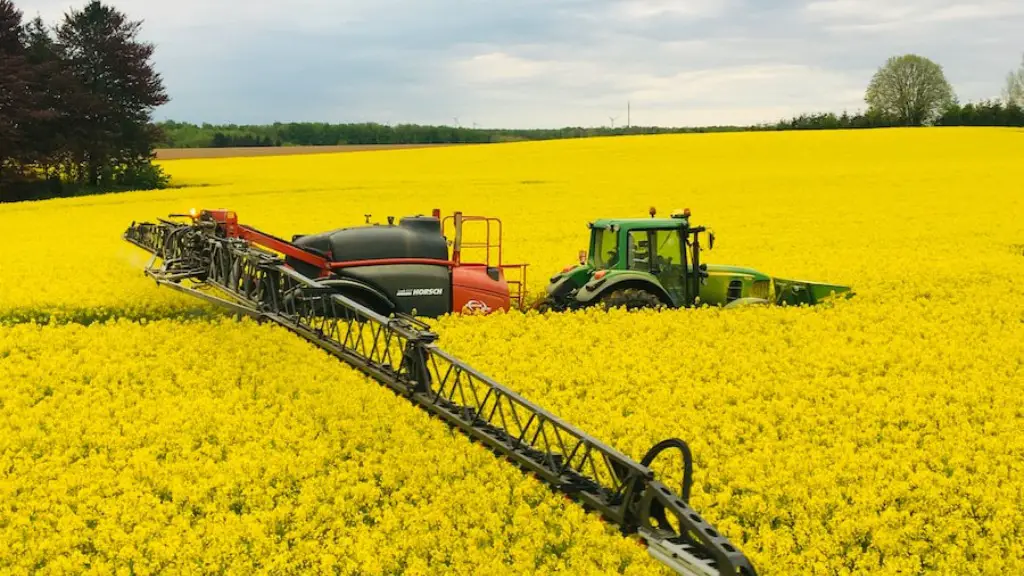Politics has had a long-standing impact on agricultural practices around the world. In nations across the globe, political systems make decisions that affect the way producers, consumers, and marketers interact with the industry. From the decisions given in regulations to the subsidies applied to certain commodities, political involvement in agriculture is a frequent and pervasive issue.
One common way that politics affects agriculture is through the imposition of regulations and restrictions. Political decision makers will often intervene in the agriculture sector to protect consumers, landowners, or other interests from potential harm caused by the industry. Regulations like the United States’ commodity checkoff pricing and EU regulations related to stock increase are two examples of these political decisions. Similarly, restrictions on the use of specific chemicals, such as pesticides, could provide a way for governments to protect citizens from any potential adverse effects of using such substances.
Broadly, politics also affects the way different types of farmers operate. In some nations, farmers who cultivate certain crops receive subsidies from their respective governments that allow them to engage in their activity at a lower cost than would otherwise be available. This type of support can incentivize and expand the production of certain crops in different areas. Additionally, the decision of the political system to designate certain crops as protected can allow these farmers to have access to larger markets, secure in the knowledge that they will not have to compete with foreign producers.
In addition to the more direct regulations and subsidies, politics also affects agriculture through macroeconomic decisions. This can include things such as interest rates, government spending, and currency exchange rates. By influencing the exchange rate, for instance, political decision-makers can determine the level of competition between producers of different countries, supporting or undermining the industry, depending on the nation’s stated priorities. Furthermore, a nation’s decision to raise or lower interests rates can influence the amount of capital available to producers, who may then use that to increase their production or hire their workforce at a more competitive rate, among other potential implications.
Politics also affects agriculture by impacting public sentiment around the industry. Often, politicians can influence consumer demand for certain products by highlighting the positive and negative sides of agricultural production. Positive sentiment around agriculture can encourage citizens to buy local products as a way of supporting the sector, whereas negative sentiment can result in consumers avoiding certain products, potentially leading to decreased demand. Furthermore, by making statements in favor of certain extensions or modifications of current regulations, politicians can have a impact on the way the public perceives and engages with the industry.
How Do Politics Affect Farmer Support Policies?
One way politics affect the agricultural sector is through its impact on farmer support policies. Governments often intervene to facilitate the stability of the sector by providing assistance to farmers. This support can take a variety of forms, including direct payments and access to credit, subsidies, or even tax breaks. By granting these assistance measures, governments attempt to increase the overall resilience of the sector, allowing it to better withstand fluctuations in demand and price pressures from other countries.
In addition to providing assistance to farmers, governments can also influence agricultural markets through the use of pricing or income stabilization policies. These policies can be used to modify existing pricing structures, aiming to stabilize (or even increase) the prices of certain goods to protect the income of farmers. Often, these policies can be subject to much debate, as there are both supporters and opponents who weigh in the potential effects of manipulating pricing structures.
Finally, another way politics affect agriculture is through the implementation of land reform policies. In many countries, governments use land reform to redistribute ownership from one group to another. This type of political decision is especially prevalent in countries where ownership of agricultural land is extremely concentrated, a situation which is seen as contributing to poverty and social inequalities. In implementing land reform policies, governments often aim to reduce land inequality and protect the inalienable rights of citizens.
How Do Politics Affect Farming Techniques?
Politics also influences the farming techniques used by agricultural producers on a daily basis. By passing regulations that dictate the minimum practices to be followed by farmers, governments can have a large impact on the way producers grow and maintain their crops. Nations often have laws in place that specify the use of certain fertilizers or the maintenance of certain biodiversity levels as minimum practices, aiming to protect consumers and the environment from any potential harms caused by improper production.
Moreover, politics can also have effects on the technological advances that occur within the farming sector. In many cases, governments will provide incentives for technological investments, often in the form of subsidies or tax breaks. This helps to encourage producers to adopt new and innovative approaches, generating a larger and more prosperous agricultural industry. Additionally, if governments decide to invest significantly in agricultural research, it can spur the development of new and improved technology in the sector, allowing producers to be more efficient.
In addition to the direct effects of politics on agriculture, political decisions can also have a large influence on the industry in other, less direct ways. This can take the form of the implementation of policies related to environmental protection, labor rights, or even the adoption of certain animal welfare standards. By implementing these different standards and policies, governments aim to promote and protect the health of their citizens and the planet as a whole.
Overall, politics plays an important role in the agricultural sector and its activities. From the implementation of regulations and restrictions to the application of policies related to farmer support and technology, political decision-makers have a direct and pervasive impact on the sector. The decisions they make related to agriculture can have a huge bearing on producers and consumers alike, making the politics of agriculture an issue of great importance.
How Do Politics Affect Subsidies and Support?
Politics also plays a major role in the presence, type, and timing of subsidies and other forms of support for the agricultural sector. Subsidies are frequently used as a method by governments to support the production of certain products or encourage the development of certain activities. Through the application of financial assistance, it is hoped that the sector can become more competitive and resilient. Nationally, subsidies are typically applied to the cost of production, aimed at reducing the cost of agricultural products for the consumer. This can be beneficial for the sector, as it can ensure farmers receive a fair price for their work.
In addition to financial assistance and subsidies, governments may also provide other types of support to the agricultural sector. This can include the provision of research and development funds, access to training programs, and even free irrigation services. By providing this support, governments aim to develop a more modern and productive sector and to create incentives for producers to adopt more advanced techniques. By taking this approach, governments hope to promote the development of the sector to the benefit of both producers and consumers.
The decision on which subsidies and other forms of support governments should implement is not taken lightly. For instance, the EU’s Common Agricultural Policy has been subject to much debate, as the level of assistance it offers has been seen as excessive. Moreover, the EU’s decision to place restrictions on the use of certain chemicals or production processes could be seen as overly restrictive, potentially hindering the industry’s competitive position in international markets.
Overall, politics plays a significant role in the presence, level, and timing of subsidies and other forms of support for agriculture. Different political systems can adopt distinct approaches when it comes to this issue, with some being more supportive of the sector and some actively hindering its growth. As such, it is important to be aware of the political backing of this industry, as this can have a huge bearing on its performance.
How Do Politics Affect International Trade?
Finally, politics can also have a large impact on the international trade of agricultural goods, with decisions made in one country potentially affecting the way products are imported and exported in other countries. For example, the application of tariffs and other restrictions by one nation can significantly influence the cost of importing or exporting goods, potentially impacting the way consumers shop. Similarly, the application of export subsidies can also have a large bearing on the prices of goods in other countries, making them more or less competitive in different markets.
In addition to regulation and restrictions, politics can also affect international trade through the use of different trading agreements. Nations may enter into multi-lateral and bi-lateral agreements in order to create preferential trade terms. Through such agreements, participating countries may be able to reduce the cost of importing certain goods and potentially increase their market access. Of course, such agreements may also restrict the free flow of goods, possibly preventing certain nations from accessing markets they would otherwise have access to.
Finally, one way politics affects international trade in agriculture is through the implementation of non-tariff barriers. Non-tariff barriers involve issues such as labelling, traceability, or environmental regulations that must be met in order for exports to be accepted in certain markets. With the implementation of such measures, political decision makers attempt to ensure that consumers are protected from potentially dangerous or inferior products.
In conclusion, politics has a long history of playing an important role in the international trade of agricultural goods. By imposing regulations and restrictions, entering into preferential agreements, or deploying non-tariff barriers, political decision makers can have a large effect on the way in which products are sold and consumed around the world.





